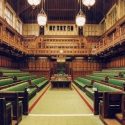Guides
Acts of ParliamentDevolved GovernmentHouse of CommonsHouse of LordsLegislative ProcessWhitehallPolitical PartiesPublic InterestThe Political Process Display All
Reference 
Did Sir Lindsay Hoyle support Brexit?
With Sir Lindsay Hoyle just one of three Labour MPs at the time not to have revealed how they voted on Brexit, we consider the Speaker's past approach towards the EU.Read More

Human Rights Act
The Human Rights Act ensures everyone is granted certain rights and freedoms, and is treated equally regardless of their identity. The Act has led to a number of high profile court decisions ranging from Hillsborough to the freedom of the press.Read More

Health and Safety at Work Act
The 1974 Health and Safety at Work Act introduced a legal responsibility for employers to protect the health and safety of all those who work or visit them. In 2018 there were 147 fatal injuries in the workplace, compared with 651 in 1974. Similarly, non-fatal accidents are now 21% of the 1974 figure.Read More

House of Lords Sitting Hours
When Parliament is sitting, the House of Lords normally meets on Mondays, Tuesdays and Wednesdays at 2.30pm and on Thursdays at 11.30am. The House of Lords does not always sit on a Friday but when it does it meets at 11am.Read More

Hereditary Peers
The 1999 House of Lords Act unseated all but 92 of the Peers who had inherited their right to sit in the House of Lords by birth. Of the current 92 hereditary peers, there are no female hereditary peers.Read More

House of Lords – An Overview
The House of Lords is the second chamber of Parliament and is also called the Upper House. A short overview of its operations, membership, and history. Peers can receive a daily attendance allowance of £313, albeit some chose not to take the payment, or accept a reduced figure of £157.Read More

House of Commons Sitting Hours
When Parliament is sitting, the House of Commons normally meets on Mondays at 2.30pm and on Tuesdays, Wednesdays and Thursdays at 11.30pm. The length of the day is governed by the 'Moment of Interruption', the time when the Chair rises to put the questions that will dispose of the day's business.Read More

House of Commons – An overview
The dominance of the House of Commons is derived from its position as the only elected element of Parliament. As such, it can claim popular sovereignty as well as the right to rule. A generic overview of how the Lower Chamber of Parliament operates.Read More
